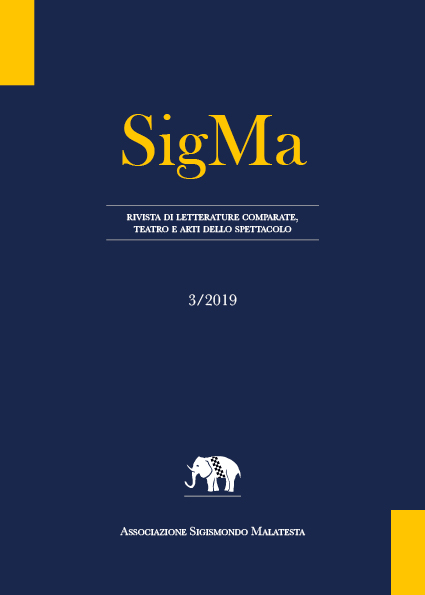Making room for oneself in Galit and Gilad Seliktar’s “Farm 54”
Abstract
The article’s aim is to explore the representation of the domestic space in contemporary Israeli graphic novels with particular emphasis on the space of the private room. This relatively recent concept of a space that has been understood according to the symbiotically mutual definition of the individual and the collective is the key feature of a domestic space that in order to be accessible must be devoid of human presences. Temporarily or permanently abandoned, these rooms become the place where the humans left their traces, as sort of daguerreotype-like space in its technical impossibility to consider the evanescent presence of human beings as opposed to the assumed stability of things. From this perspective only the objects left behind in these rooms can allude to the protagonists’ story reconfiguring these rooms between absence and presence, like in Susan Meiselas’s project A room of their own. This combination of loss and alterity defines the domestic space as the sum of the objects left behind from the absent or voiceless protagonists of stories that is up to readers to piece together. In contemporary Israeli graphic novels, the protagonists of these stories might have abandoned their domestic space in an attempt to disappear by making a clean break, or against their will, or sometimes simply because they grew up. In order to know their stories, the readers have to follow the mute clues going from one room to another.
Approaching the notion of representation and its peculiarities with respect to the graphic novel, the article explores the private rooms as a deserted space in the works of Galit and Gilad Seliktar.
Downloads
SigMa pubblica in internet, ad accesso aperto, con licenza:
|
|
CCPL Creative Commons Attribuzione |
L'autore conserva il copyright sul suo contributo, consentendo tuttavia a chiunque "di riprodurre, distribuire, comunicare al pubblico, esporre in pubblico, rappresentare, eseguire e recitare l'opera", purché siano correttamente citati l'autore e il titolo della rivista. L’autore, al momento della proposta di pubblicazione, è inoltre tenuto a dichiarare che il contenuto e l’organizzazione dell’opera è originale e non compromette in alcun modo i diritti di terzi, né gli obblighi connessi alla salvaguardia di diritti morali ed economici di altri autori o di altri aventi diritto, sia per testi, immagini, foto, tabelle, sia per altre parti di cui il contributo può essere composto. L’autore dichiara altresì di essere a conoscenza delle sanzioni previste dal codice penale e dalle leggi speciali per l’ipotesi di falsità in atti ed uso di atti falsi, e che pertanto Reti Medievali è esente da qualsiasi responsabilità di qualsivoglia natura, civile, amministrativa o penale, e sarà dall'autore tenuta indenne da qualsiasi richiesta o rivendicazione da parte di terzi.

